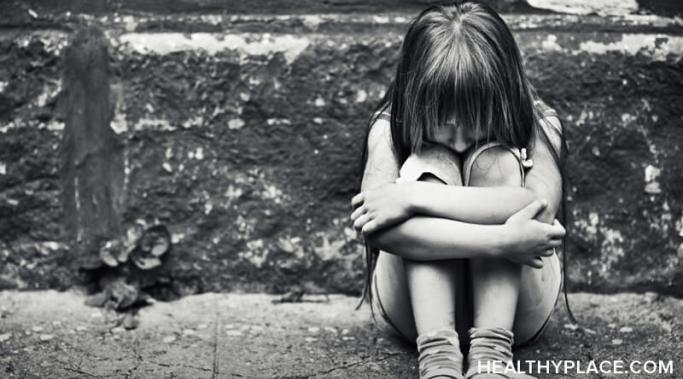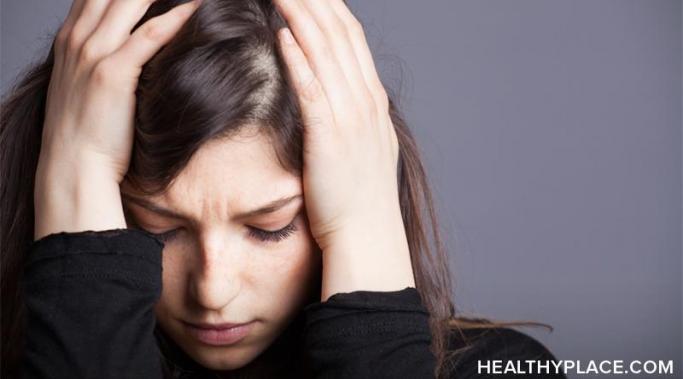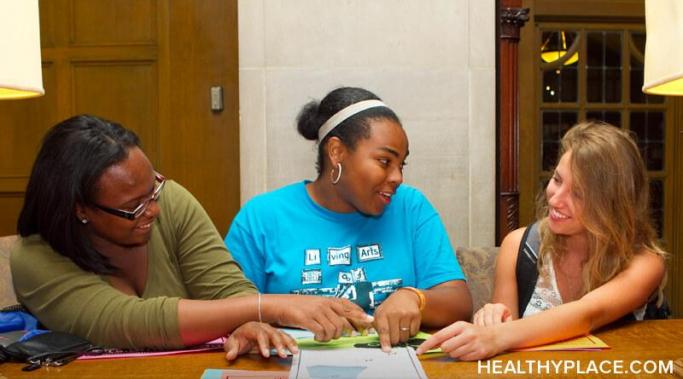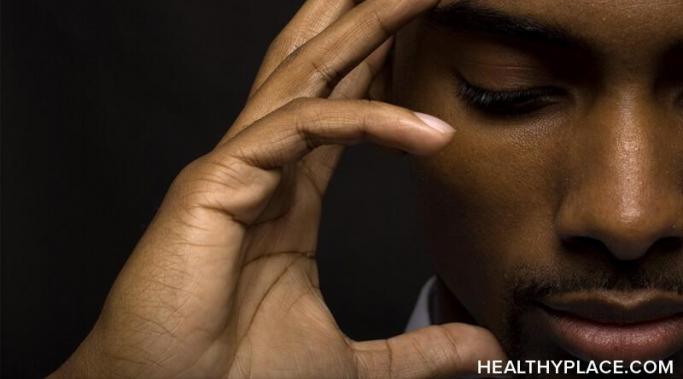It helps to know the difference between paranoia and anxiety. If I am experiencing paranoia, it involves delusions like someone is out to get me (suspicion and distrust) or has betrayed me. I frequently battle the delusion that someone is poisoning my food. My paranoia can cause anxiety, but the two do not have to be present together. My anxiety attacks often have ties to worry (like health concerns, the health of a loved one, public speaking, etc.), but not always. I can have an anxiety attack where I can't identify a triggering cause.
Creative Schizophrenia
I was diagnosed with schizoaffective disorder, bipolar type, in 2002 (after a diagnosis of schizophrenia in 1999). But the anxiety that so often accompanies bipolar disorder and schizoaffective disorder has been with me since early childhood.
Psychosis (the presence of hallucinations and/or delusions) and anxiety can be difficult to deal with in relationships. Many symptoms can be confusing, frustrating, and challenging to those looking from the outside. When I have had breaks from reality (psychotic episodes), I have always treated my family and my spouse with suspicion due to paranoia. The paranoia often causes me to think that I am in danger around those who are the most supportive of me.
I think I’m on a very good medication cocktail. There are several reasons why, but the funniest one is that when I typed “medication cocktail” into my notes on my phone as a story idea, the predictable word “hour” appeared. I was able to see the humor in that, and when I told my husband, Tom, about it, he said, “Medication happy hour!” and we both laughed. Ain’t love grand?
Limitations affect people with schizophrenia, but I believe people with schizophrenia can achieve great things. I know of three women who have schizophrenia who started and run non-profit organizations. I know of three women who are parents to young children. I know several people with schizophrenia who have jobs as writers or artists and others who work as marketing professionals and content creators. Elyn Saks, one of the most well-known people with schizophrenia, is a doctor and professor. These are examples from the two to three dozen people I follow on social media or who I have become friends with in my years of advocacy. If I knew more people with schizophrenia, I assume I would find people with the illness in every role, identity, or profession.
I have schizoaffective disorder and take birth control pills for my premenstrual dysphoric disorder (PMDD). But lately, I have been having a problem with my birth control. Here’s what’s been going on.
Schizophrenia is a big part of my life. There are times (almost always) when I think it is too big of a part of my life. I doubt anyone wants to believe that their whole life and thoughts revolve around their mental illness, but hardly a moment goes by when I'm not thinking about schizophrenia. For example, I frequently have symptoms that make me aware of my illness.
I haven’t heard schizoaffective voices in over a year, but when I used to hear them, I encountered a lot of stigma and became reluctant to mention them. Much of it was self-stigma, in that I wouldn’t talk about them to the people around me unless they were people I trusted and who knew already that I heard voices. But, the thing is, I was correct in not revealing, say, at work when I heard voices, as there is both stigma and self-stigma involved.
It seems like I am always learning something new about schizophrenia and its symptoms. I learn from my relationships with people with the illness and from following social media accounts of people with schizophrenia or schizoaffective disorder. I also get new information from my doctor and other psychiatrists who write about schizophrenia symptoms and the latest treatments.
My schizoaffective anxiety makes it hard to go outside and exercise daily. Here’s why.









